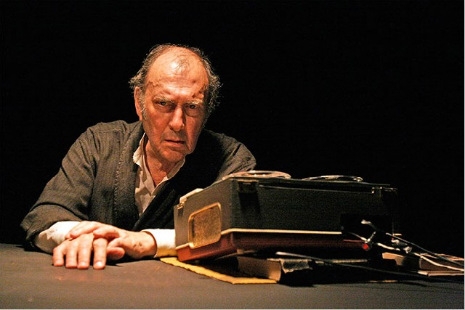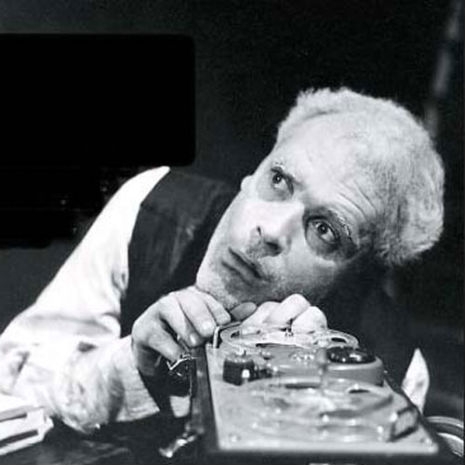
Harold PInter liked Samuel Beckett because he rubbed his nose in the shit. He wasn’t leading him up the garden path. He wasn’t giving him the wink. And he certainly wasn’t fucking him about. No.
Pinter knew Beckett wasn’t selling him anything. But if he was selling him anything, then he would have bought it hook, line and sinker.
Pinter first read Beckett in 1953, while working in Ireland. When he returned home to London, Pinter searched the libraries for any of Beckett’s books. He couldn’t find any, that is until he happened upon a copy of Beckett’s novel Murphy in the Bermondsley Reserve LIbrary. Pinter borrowed it, and as he noted that the book had not been taken out since 1939, he kept it.
This is Pinter’s astounding performance in Beckett’s Krapp’s Last Tape. Though Patrick Magee was Beckett’s original choice for the role, Pinter brings a dark, bitter irony to the character, as well as a heightened sense of personal mortality. Pinter described the play he sees as being about death, and about love - the impossibility of love and the necessity of love.
Previously on Dangerous Minds
When Harry Met Sammy: Pinter on Beckett
Patrick Magee: Stunning performance in Samuel Beckett’s ‘Krapp’s Last Tape’






